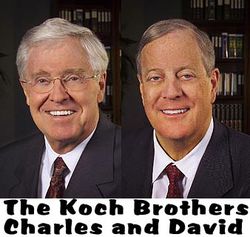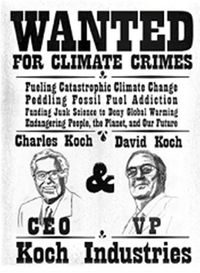Think of this as Volume 17, Number 5 of A-Clue.com, the online newsletter I've written since 1997. Enjoy.

history were pretty much settled by this point after the crisis
election.
By January of 1865 the Confederacy was
all but dead. By this time in 1901 the Populists were a spent force.
The initial crisis that created the New Deal was settled by 1937,
although the struggle for democracy was just beginning. By 1973, we
were well past the 1960s and talking full-time about Watergate.
While the course of our future politics
seems settled, however, the political crisis that began in 2008 is
ongoing, and the underlying economic cause – the War Against Oil –
seems barely to have been launched.
You may ask why. I'm here to tell you:

American crises happened at generational intervals of 36 years. The
Nixon Thesis took 40 years to collapse, in large part (I concluded)
because people are living longer, so that those who fought the
initial fight on behalf of the Nixon Thesis of Conflict are still
among us. That wasn't true before. By 1973, 1932 was history, just as
by 1933, 1896 was history, and by 1897, 1860 was history. To too many
people, 1968 is not yet history.
Many of the figures who came up under
the Nixon Thesis remain relevant. Hillary Clinton was part of the
Judiciary Committee staff during the Nixon Impeachment. David Keene,
now head of the NRA, was already politically active in 1973. (I got
drunk with him at a political meeting in 1971.) The early Nixon era
remains part of living memory, and thus political memory. Ironic that
while technology changes faster than ever today, our reaction to it
changes more slowly, but there you are.

elections of 1860 and 1932 were set against ongoing conflict.
Conflict had really just begun in 2008, at least the political
conflict on which today's crisis is based. The actions taken in late
2008 and early 2009, and their honest Administration by both the
givers and recipients of that aid, prevented a wholesale collapse
that would have led to faster realignment.
Imagine if FDR had been running for
office in 1929 (or if Al Smith had won in 1928) – how might swift
action have kept the Great Depression from turning out as badly as it
did. And how much closer might the subsequent election have been had
FDR had to run for re-election against the backdrop of a faltering
recovery rather than a knife-like slide?
The Underlying Crisis is Not Yet Seen –
This may be the most important point of all.
All of America's political crises, in
my view, are fights between a dominant economic order, which has
taken control of politics, and a rising economic order. The Civil War
was about manufacturing vs. hard labor. The Progressive Era was about
organized inputs vs. a disorganized market. The New Deal was about
supply needing demand, and the 1960s were about a slowing
manufacturing base against a new base in technology and content.

energy and fossil fuels. Renewable energy can cap fossil fuel prices,
sending them downward, gradually creating abundance. Economic
abundance, an end to a generation's economic bottlenecks, is always
the aim of a new Thesis, a new politics, and answers a generation's
political crisis. The business of America remains business.
Renewable energy has grown in the last
four years, and the case for it is clearer than ever. Biofuels are
approaching cost parity with fossil fuels, and solar energy is
approaching crossover with grid energy, but the decisive turn hasn't
come. Yet. It's in sight, but it's not here yet, because public
policies have yet to rush forward to meet that economic turn.
You could argue that the President has
deliberately ignored the underlying economic forces, that he has
failed to understand the climate crisis. Or you could argue that
President Obama has allowed the crisis to fester, to continue, in
order to make certain that the lesson is learned for all time.
The President did address the climate
crisis in his Inaugural Address, while everyone else continues to
talk about a jobs crisis, or a deficit crisis, or a growth crisis.
The War Against Oil is not just a cure for the climate crisis, but
for all these other crises as well. Taxing carbon, pushing up the
price of fossil fuels against alternatives, only works economically
if renewables are scaling to meet the new demand. That's just now
ready to happen. That scaling will allow the employment of millions
of new workers. The resulting taxes and growth will deal with most of
the current deficit crisis. Tax revenues from a carbon tax would take
care of the rest.

around fossil fuels is more intractable than any class that has come
before. Just as the New Deal crisis wasn't really ended until World
War II, so we find in this case that Hitler is among us. Sorry for
violating Godwin's Law here, but it must be said. The threat of
climate change created by the fossil fuel magnates is as existential
a threat as what we faced in World War II – more existential.
And
the forces arrayed against us aren't on some foreign shore, but here
among us. The Koch Brothers and their ilk, the same men pushing the
climate crisis onward, are American citizens, and legal participants
in American politics. The Hitlers of our time are our fellow
countrymen. They can't be isolated as they were in 1861, to a single
section of the country, or in 1933, to the other sides of the globe.
The men who would kill your grandchildren are here. They are
Americans. They are rich, and they remain both powerful and
dangerous.

problems is in sight. The economy is turning, our politics have
turned, but Wall Street remains unready to switch sides, to turn on
the Kochtopus. That's the last step in ending this game. Business has
to persuade itself that abundance is the right way to go, and that a
carbon tax is the easy path to that abundance.
Why does it take so long for all this
to happen? Well, consider that Hillary Clinton is still thought to be
a candidate for Obama's succession. A woman who helped impeach Nixon,
who has been part of the national political conversation for over 20
years – political lives are measured in dog years – may still be
our President in the year 2020.
History takes time.











I think the issue is that we’ve had repeated and more frequent crises since Nixon: starting with Watergate, the Iran hostage debacle, Iran-Contra, S&L collapse, Enron, Monicagate, the botched 200 election, various others under W, and a range of conspiracies about Obama (none of which was founded). This has led to a widespread belief that government is not only ineffective, but contemptable.
The right-wing noise machine has only made the situation worse in that it is not amenable to facts or reason.
I think the issue is that we’ve had repeated and more frequent crises since Nixon: starting with Watergate, the Iran hostage debacle, Iran-Contra, S&L collapse, Enron, Monicagate, the botched 200 election, various others under W, and a range of conspiracies about Obama (none of which was founded). This has led to a widespread belief that government is not only ineffective, but contemptable.
The right-wing noise machine has only made the situation worse in that it is not amenable to facts or reason.